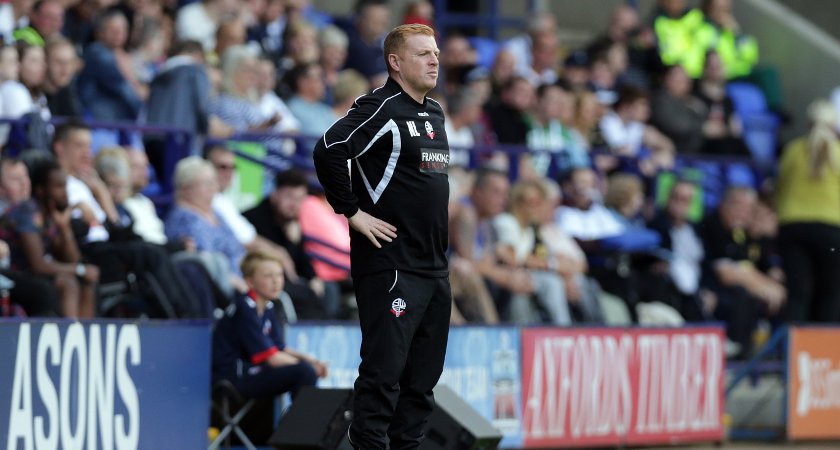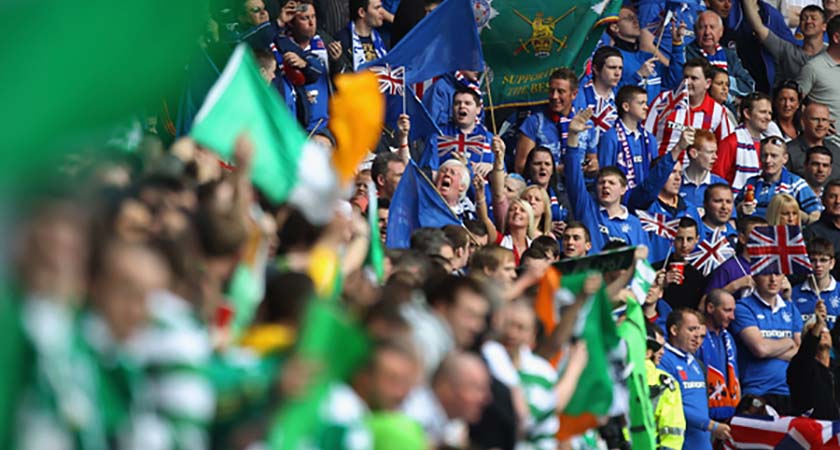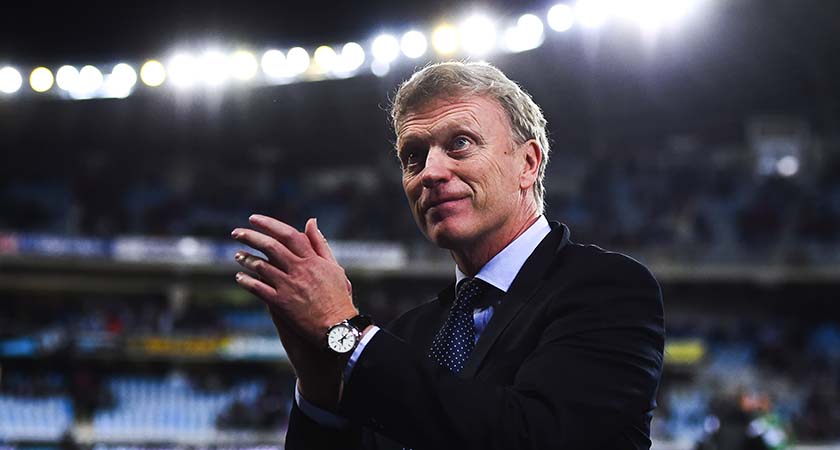ON leaving the national stadium after the recent Scottish Cup semi-final, there was a palpable anger among Celtic fans who had suffered an embarrassing defeat.
The depth of disillusionment shouldn't be underestimated. The cool air outside Hampden was punctured with questions about Ronny Deila's two years – it was clear their distain was not with him, but reserved for the club's chief executive.
Some decided to voice their distain by erecting a banner outside Celtic Park decorated with pound and euro signs which read "The Blame Lies With You Lawwell". They've also had their fill of ex-players and sections of the media bowing at his throne.
In a statement last week, Peter Lawwell rightly praised Deila's personal character, but at the end of this season he would do well to apologise to fans for the magnitude of the mistake he has made in bringing him to Celtic.
In 2010 the Celtic chief executive was forced to say sorry at the end of a barren season after the appointment of Tony Mowbray.
Neil Lennon was brought in as a temporary replacement to steady the ship. This writer was present at the press conference of the disastrous semi-final match he lost 2-0 against Ross County. At that moment, you wouldn't have bet against Lennon because his sense of anguish and intent filled the room.
He seemed to take it as his own personal responsibility to dig Celtic out of a hole. After being given the opportunity, his abilities shone and he proved the doubters wrong by building one of the most eminent Celtic sides of recent years.
 Neil Lennon is available after parting company with Bolton (Photo by Clint Hughes/Getty Images)
Neil Lennon is available after parting company with Bolton (Photo by Clint Hughes/Getty Images)Under that guidance, fans believed Celtic could win against stacked odds. Their faith was rewarded with a 2-1 victory over Barcelona one day after the club celebrated its 125th anniversary.
Sadly, it was the catalyst for the dismantling of a cohesive and hungry side. Gary Hooper, bought for £1.5million, was sold for £6m. The club also collected £12.5m for Victor Wanyama after securing his services for an astonishing €800,000.
Of course, there were others, such as Fraser Forster (sold for £10m), Joe Ledley and Ki Sung-yueng, who went on to thrive elsewhere. Lennon secured Champions League football on two occasions, allowing 60,000 vocal Celtic fans to spellbind the opposition, but it was clear by Lennon's second run in Europe that funds were needed as his side struggled.
No-one expected the club's European pedigree to fall into decline as much as it has in the last two seasons.
Under Deila, Celtic have failed to make the Champions League twice, three times if you count the reprieve against Legia Warsaw. While the Europa League looked like it might be a more suitable level for a club clearly downsizing, Celtic failed to secure a win at the group stages.
The loss of Virgil Van Dijk (transferred to Southampton for £13m) was another painful but inevitable loss. To many of us, Neil Lennon's exit as manager seemed premature and rumours of struggle with Pater Lawwell over finance swept through Glasgow.
Celtic is a club steeped in narrative and history. Without Lennon, the club's story might have taken a less fortuitous turn long before now. Celtic v Rangers is arguably the greatest derby in club football. It requires a certain type of manager that can stand up to intimidation and media hype.
 Rangers and Celtic fans will meet again next season (Photo by Jeff J Mitchell/Getty Images)
Rangers and Celtic fans will meet again next season (Photo by Jeff J Mitchell/Getty Images)Jock Stein, Martin O'Neill and Neil Lennon were masters of the art, each of them in their own way displayed the psychological strength required with some aplomb. During the O'Neill years, Celtic would routinely sell-out home matches, fans would exit the club's official shop clutching bags stuffed with replica tops and merchandise.
Today, fans are leaving in droves and the ground is regularly less than half full. In September last year, the club recorded its lowest attendance in 21 years with only 13,591 showing up for a match against Raith Rovers in the League Cup.
Celtic have a man who sits on the board of directors that voted in favour tax-credit cuts for Britain's lowest paid. Had Ian Livingston's wish been granted, those cuts would've affected the lives of many disadvantaged supporters of the Parkhead club.
Celtic fans are right to demand a higher standard; why should they provide funds for players who fail to earn their corn? The wage bill of the 11 opposing teams combined that face Celtic every week still can't compete with the cost of this bloated squad which contains no less than 17 midfield players.
Last Sunday's 1-1 disappointment with Ross County did little to raise the spirits. The "fairytale" element that Billy McNeill so often speaks of has left the building. We know the stories of Lisbon Lion and kit-man John Clark taking Henrik Larsson to one side to tell him the story behind Celtic's historic European Cup win.
It is time for a disciplined, hungry and experienced manager to come in that really understands what Celtic is about to get that kind of energy running through the club again.
Neil Lennon and David Moyes are front-runners. Both men have something to prove but they will need to be treated with respect. Celtic have been made weak under Peter Lawwell while other Scottish clubs have mustered their forces.
 David Moyes is the favourite to succeed Ronny Deila (Photo by David Ramos/Getty Images)
David Moyes is the favourite to succeed Ronny Deila (Photo by David Ramos/Getty Images)Walter Smith was universally panned when he suggested "bitterness" should be a motivation for Rangers when referencing events affecting his former club.
Rangers now have a manager with a healthy disregard for the unsavoury traditions of yesteryear and it's not lost on Celtic fans that his team playing football that is "easy on the eye" as Neil Lennon suggests.
Do the Celtic board realise that it will take a gargantuan effort for any manager to come in and galvanise this club? Martin O'Neill was said to have had the run of Celtic Football Club during his time there and what's clear is that Celtic need a chief executive who will acquiesce power and ego.
Former Celtic player David Moyes has consistently talked up his understanding of what might be possible in relation to the size of the club. He has rightly distanced himself until the current manager has departed.
Celtic still have a league title to secure. What's certain is that Moyes will never take the job without being in full control with the right financial support. That seems unlikely under Peter Lawwell, who has now enjoyed 13 years at the helm.
But it does appear that the wheel might be turning as the 56-year-old is said to be high on Sunderland's chief exec short-list. Martin O'Neill managed to resurrect a sleeping giant when he joined the club in 2000 and it will take someone of that stature to replace Deila.
Someone that can turn this nightmare back into a fairytale.

